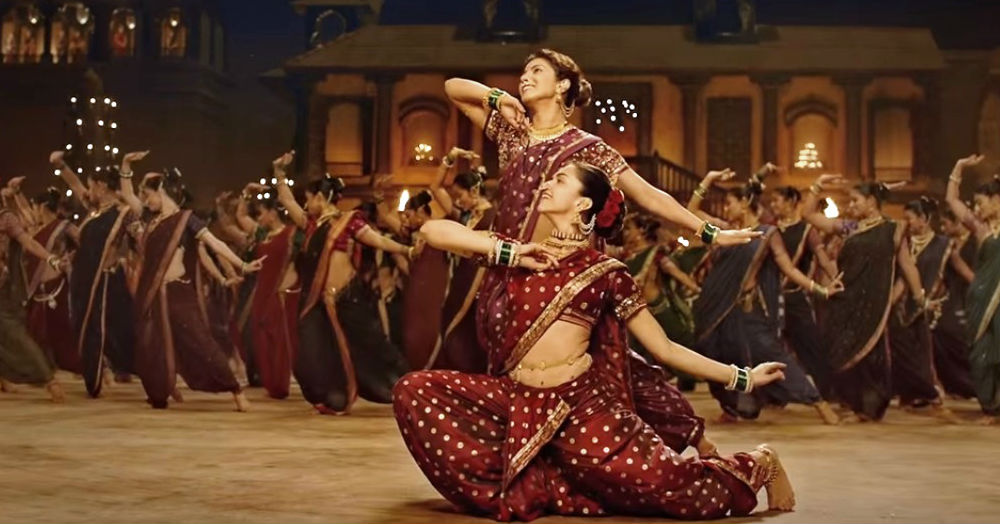
India has a rich cultural heritage filled with beautiful textiles from every nook and corner of the country that you simply cannot miss. And there’s no denying that the saree is definitely the best garment that’s been created in India and its fluid drape looks no less than a million dollars. So why not embrace the tradition and notch up your desi style by experimenting with different types of sarees. Let’s take a closer look at 13 saree styles in India from its different states that every woman must have in her closet!
1. Benarasi Saree From Varanasi

Image: Sabyasachi on Instagram
The Benarasi saree is one that can’t not be in your Indian sarees collection. The silk used to make this type of saree is handwoven in the state and is more like owning a piece of art and history rolled in six yards of absolute pleasure. If you don’t have one, get it already.
2. Kanjeevaram Saree From Tamil Nadu
Image: Neeta Lulla on Instagram
Kanjeevaram saree style is to South India what Benarasi is to North India. The Kanjeevaram type of saree is also made of silk – mostly mulberry silk and is known for its expansive and elaborate gold border that come with intricate patterns and traditional motifs such as the temple borders, ancient relics and tales of local folklore.
3. Kasavu Saree From Kerala
Image: Raw Mango on Instagram
The Kasavu saree from Kerala is essentially a simple cotton Indian saree in off-white with a golden border which developed as an extension from the Kerala mundu-saree. It is also the state’s costume dress and used to adorn the deities of the region.
4. Sambalpuri Ikat Saree From Odisha
Image: Hathkargha on Instagram
Ikat is a double weave fabric that’s woven to make patterns in the yarn stage. The fabric is known for its beautiful geometric patterns that form what is known as Ikat. A cotton or silk Ikat saree is a priced possession in every Indian woman’s saree closet!
5. Pochampally Saree From Telangana
Image: Omnah By Malavika on Instagram
This one is similar to the Ikat saree in technique, but only the design differs slightly and the silk does too. Pochampally belongs to Telangana and looks rather fab and rich, with this type of saree having mostly a bounty of colours.
6. Paithani Saree From Maharashtra
Image: Neeta Lulla on Instagram
Paithani is a saree style in India named after the Paithan town in Aurangabad, Maharashtra. Woven by hand and made from very fine silk, they are considered as one of the richest Indian sarees. Paithani is characterized by borders of an oblique square design, and a pallu with a peacock design. The kaleidoscopic effect is achieved by using one colour for weaving lengthwise and another for weaving widthwise.
Also read: 23 Indian Fashion Terms Every *Desi* Girl Should Know!
7. Bandhini Saree From Gujarat
Image: Teja Sarees on Instagram
Tie-dye is a technique that was discovered in Japan, and with travelling Indians, the technique came down to Gujarat, where most business in India happened, back then. This Indian saree popularly known as Bandhini is made by tying small knots on the entire surface of the fabric, with a resist or gum so as to not permit the colour to flow everywhere. High technique, and higher on style, this type of saree is usually made in chiffon and is a rainbow of colours!
8. Leheriya Saree From Rajasthan
Image: Bhargavi Kunam on Instagram
Again a tie-dye technique that refers to waves and swirls, this style of Indian saree belongs to the colourful state of Rajasthan where it is used for daily wear. It generally comes in bright colours with the resist of the dye forming white waves.
9. Chanderi Saree From Madhya Pradesh
Image: Raw Mango on Instagram
From the Chander region in Madhya Pradesh, this saree is an epitome of simplicity meets style. The lightweight fabric comes with a light golden zari that’s such a daily wear essential. It’s really like a manifestation of imagination and craft.
10. Muga Silk Saree From Assam
Image: Bipasha Basu on Instagram
Muga silk is special because of the silkworms that they’re made from. The larvae of these moths feed on Som (Machilus bombycina) and Soalu (Litsea polyantha) leaves. How the Assamese adapt this in their Mekhala Chador is fascinating and owning this prized saree will make any Indian wardrobe 100 times prettier, we promise!
11. Patola Saree From Gujarat
Image: Shah Gaurang on Instagram
Patola is a must-have in your Indian sarees collection because it might become extinct any time soon and is equivalent to owning a craft wonder. There are only about 30 weavers who can weave a Patola saree – which is a double weave hand dyed saree before the warp and weft are woven together to create myriad of patterns. Also, it takes almost a year to make one Patola saree, so hurry!
12. Jamdani Saree From Bengal
Image: Shah Gaurang on Instagram
Originally from Dhaka, Bangladesh and also called Dhakai-Jamdani, this silk saree is a part of the Bengali bride’s wedding trousseau. The traditional motifs in these types of sarees are flowers, represented like a garden signifying bloom and the start of good things. Don’t you definitely need this one?!
Also read: How To Look Slimmer In A Saree – 8 Simple Tips!
13. Kalamkari Saree From Rajasthan
Image: Anavila Misra on Instagram
Kalamkari is the art (kari) of hand painting on fabric using a pen (kalam). A Kalamkari saree is like owning a heritage piece of art in the form of a saree. This Indian could be made of cotton or silk and is considered extremely precious in the region. Kalamkari sarees are pretty popular and easily available too. The Kalamkari saree style in India generally uses vegetable and organic dyes with which the designs are painted.
Read More From Fashion
Wedding Outfit Ideas From Our Fave Bloggers To Be The Best-Dressed This Shaadi Season!
Isha Jain